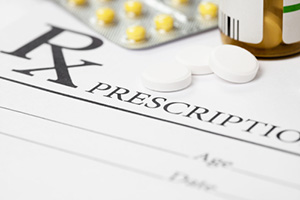Generic Drugs – What Can You Do Now To Protect Yourself?

We know you take generic. Come on, admit it. Generic drugs are often significantly less expensive with a similar formula to their name brands and, we know, in this day and age we have to save money where we can. In fact, generics are so widely used, around 80 percent of Americans use generic drugs over brand name prescription drugs.
To the 80 percent of people who use generic drugs: Be Careful. When you take a generic drug you are not able to sue the pharmaceutical company should anything go wrong. A generic drug could significantly injure you, cause a heart attack, seizure, blood clots – even death – yet you would still not be able to file a lawsuit to address your situation.
Unfortunately, the fact that the manufacturers of generic drugs cannot be held accountable for the injuries they impart in the same way that brand name manufacturers can be does not make generic drugs safer. In fact, generic drugs are less safe than brand name drugs.
The FDA requires generic drugs get 80 to 125 percent of the drug into your bloodstream compared to the original brand name drug, which means that the dosage your doctor prescribes is not always the dosage that you actually ingest. Even more troublesome is the fact that for every original brand name drug, there are countless versions of generic drugs. Some people who are lucky enough to have visited with doctors who educate them on the best practices surrounding the purchase of their prescriptions may have been told that they should try to refill recurring prescriptions from the same pharmacy each time. This is a great practice to enlist; however, refilling your prescriptions at the same pharmacy is not enough.
Instead, when you take generic drugs, particularly for a recurring medication, pay attention to the generic drug manufacturer’s name. On most medication labels, the manufacturer name is right underneath the drug name. It should say something like, (MANUFACTURER’S NAME) Generic for (DRUG’S NAME).
If you find a generic drug that works particularly well for you, write down the manufacturer’s name and try to only receive this drug version from the pharmacist. You may have to call around to a few pharmacies in your area to find the version you need, and you will definitely have to make sure each time you refill your prescription that the pharmacist has respected your request for this version specifically.
Patients whose blood levels must be kept within a narrow range to be effectively treated and avoid toxicity should pay special attention to which generic versions work for them – or don’t. These patients include patients taking thyroid medication, anti-seizure (anticonvulsant medicine), antidepressants, antipsychotics, blood thinners, immunosuppressants and asthma medications.
In addition, patients who take XL (extended-release) medication must pay special attention to their use of generic drugs. Unfortunately, generic drugs in XL form are most likely to deliver lower or higher amounts of the drug, at a slower or faster rate, than the original brand name drug intended to deliver to your blood stream. In 2012, the FDA pulled a generic drug version of the popular antidepressant Wellbutrin off the market for this. Manufactured by Impax Laboratories and marketed by Teva, this generic was recalled from the market because it did not work, even causing some patients to become suicidal.
We hope this is advice is useful for you as you work on deciphering the safety of the drugs you take. The fact that generic is significantly more affordable is an important reason to take generics for many families; however the fact that generic drugs may be less safe than brand name drugs is an important fact to protect you and your family in the long run. When you can, you should try to take brand, particularly for the patients whose needs are listed above. However, when you cannot take brand name, please pay attention to how the drug is working for you. If you find a generic version that you think works for you, it is worth the added effort of using it again next time you fill or refill the prescription.
At Baron and Budd we believe that no matter the preventative measures you take, the bottom line is that we need to be able to hold generic drug manufacturers accountable. With 80 percent of Americans choosing generic, we cannot afford otherwise. Just think – how many things in life and business end well without supervision?
